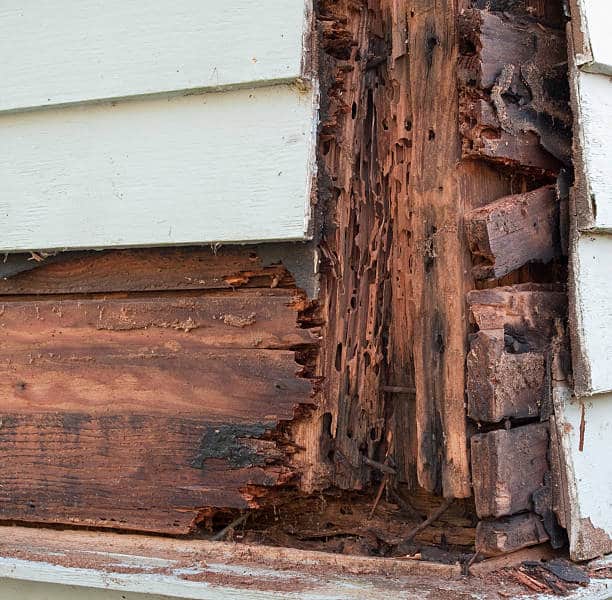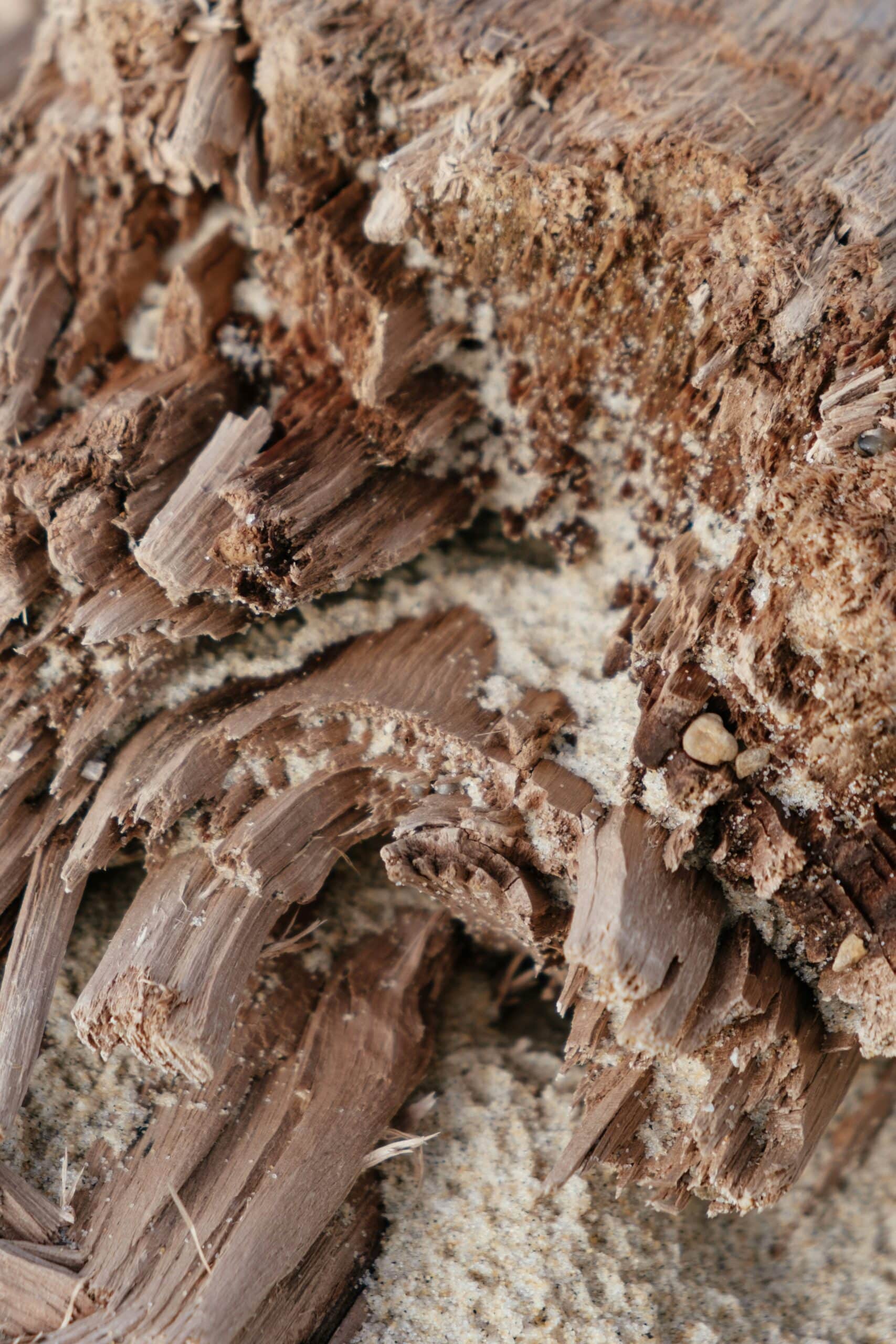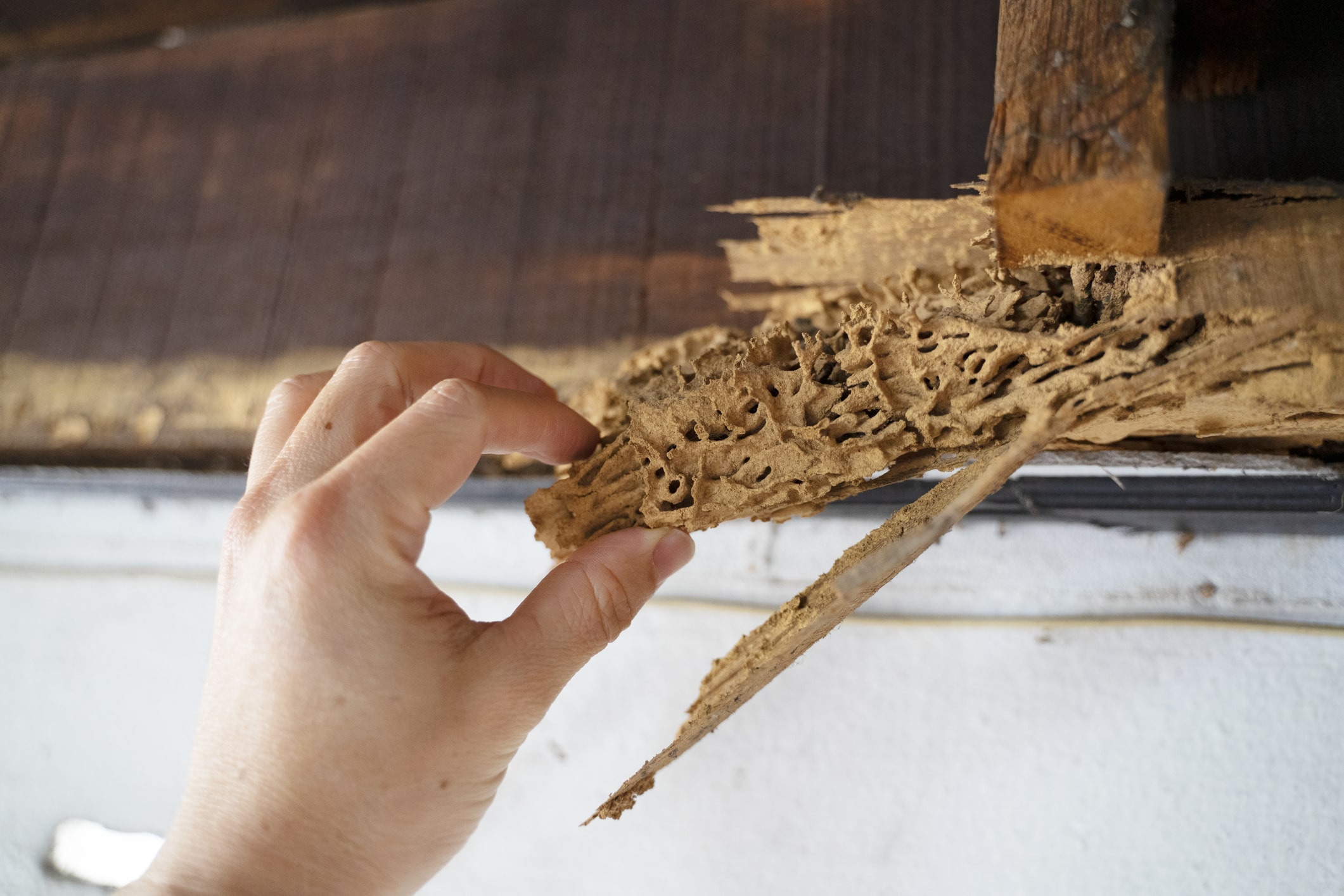Contact Us Today!

Termite Infestation?
The key to dealing with termites is to stop them as soon as you see them. If you have termites or think you have termites, our trained professionals will come to you ASAP, assess any structural damage and ensure that your home is restored safely and quickly. Since 2014, we’ve helped our neighbors and clients in the Little Rock area, and we are always ready to help you erase evidence of these devious pests.

Why Choose Us?
An exterminator can rid you of a termite infestation, but can they help you recover from the damage and replace any wood that these insects destroyed? That’s the Pro Service Builders difference – we build it back, and we do it with expertise and speed. As a company that provides construction and restoration work, we are uniquely suited to address the structures that termites have damaged. Our commitment to customer service also means that we treat every job with respect. A termite infestation is stressful. We know this and do everything we can to restore your home’s integrity – and your peace of mind.
How Common is Termite Damage?
Despite modern advances in prevention and treatment, termite infestation is still a common occurrence in the U.S. and certainly here in Arkansas. Every year, termites infiltrate 600,000 properties in the United States, causing a collective $5 billion in damage. And the longer you wait to conduct termite extermination, the more expensive it becomes due to the exceptional amount of damage they do to wood.

We’re Here to Help
Wherever you find termites, Pro Service Builders is ready to help you recover and restore your residential property. And no matter how much damage these swarming insects cause, we have the knowledge and experience to determine the best way to restore your home.
Have an Emergency? Contact us Today!
24/7 Emergency Response
100-plus years combined experience
Fully Bonded and Insured
5-star Rating
Termites 101
While termites are a pain to deal with, the key to minimizing their damage to your home is early detection. The good news is that termites, while they can be hard to spot, also leave telltale signs of their presence.
- Spotting Termites
- Vigilance is Key
Spotting Termites Termites live in highly ordered colonies. The termites that do the most damage are known as “workers,” and are noticeable by size (about one-eighth of an inch long) and color (white to creamy translucent). The other, often most visible, sign of termites are called “swarmers.” These termites are the colonists of another nest. They sprout wings, and although they are poor fliers, they get carried on the wind until they find a suitable location to infest. In Arkansas, they generally swarm in the spring and early summer and are obvious because they swarm in large groups.
Beyond sighting the insects there are also other visible signs of a termite infestation in a home, including:
– Hollow-sounding wood
– Sagging floors or ceilings
– Crumbling wood in any structure
– Cracked or distorted paint on wood surfaces
– Red clay or mud trails
– Mud tubes on exterior walls (termites use these to protect themselves and provide moisture)
If you have noticed one or more of these signs, you need to investigate further, and quickly. But be careful not to rip open a colony. Eastern Subterranean termites – the most common termite species in Arkansas – will move on to a different area if disturbed and cause damage to previously untouched parts of a structure.
Termites live in highly ordered colonies. The termites that do the most damage are known as “workers,” and are noticeable by size (about one-eighth of an inch long) and color (white to creamy translucent). The other, often most visible, sign of termites are called “swarmers.” These termites are the colonists of another nest. They sprout wings, and although they are poor fliers, they get carried on the wind until they find a suitable location to infest. In Arkansas, they generally swarm in the spring and early summer and are obvious because they swarm in large groups.
Beyond sighting the insects there are also other visible signs of a termite infestation in a home, including:
– Hollow-sounding wood
– Sagging floors or ceilings
– Crumbling wood in any structure
– Cracked or distorted paint on wood surfaces
– Red clay or mud trails
– Mud tubes on exterior walls (termites use these to protect themselves and provide moisture)
If you have noticed one or more of these signs, you need to investigate further, and quickly. But be careful not to rip open a colony. Eastern Subterranean termites – the most common termite species in Arkansas – will move on to a different area if disturbed and cause damage to previously untouched parts of a structure.
Vigilance is Key Termites are persistent, hard-working and a total nightmare if they take root in your home. Stay vigilant, especially during the spring and summer when new colonies form and swarmers are in search of a new home.
Also, do not mistake a swarmer for a flying ant. It is an easy mistake to make, but a close inspection of the two insects reveals differences:
– Termites have straight antennae; similar-sized, paired wings; and a thick, straight waist.
– Flying ants have bent antennae; front wings that are longer than their back wings; and a distinct, curved waist.
Prevention is the best method of avoiding termite damage, and professional companies can provide several measures to keep your home at the lowest possible risk. If you discover a termite infestation, do not hesitate; call a professional right away and limit the damage already underway in your home.
Termites are persistent, hard-working and a total nightmare if they take root in your home. Stay vigilant, especially during the spring and summer when new colonies form and swarmers are in search of a new home.
Also, do not mistake a swarmer for a flying ant. It is an easy mistake to make, but a close inspection of the two insects reveals differences:
– Termites have straight antennae; similar-sized, paired wings; and a thick, straight waist.
– Flying ants have bent antennae; front wings that are longer than their back wings; and a distinct, curved waist.
Prevention is the best method of avoiding termite damage, and professional companies can provide several measures to keep your home at the lowest possible risk. If you discover a termite infestation, do not hesitate; call a professional right away and limit the damage already underway in your home.

